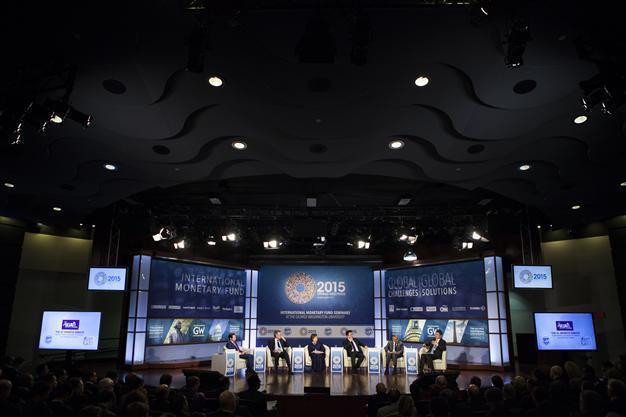World Bank says uncertainties continue in Turkish economy, urges key reforms
ANKARA

AA Photo
The World Bank has said uncertainty related to the June elections continues to affect investors’ sentiments toward the Turkish economy and urged the strong need for key structural reforms in its regular economic brief on April 17.“Uncertainty related to the upcoming parliamentary elections continues to weigh on investor sentiment; rapid implementation of key structural reforms is critical to restore confidence,” warned the brief.
“A credit-driven consumption-based growth strategy is no longer a viable option for Turkey. Households and corporates are now more leveraged compared to the early 2000s, and with banking sector profitability declining and the loan-to-deposit ratio rising to 115 percent, the ability of the banking sector to support rapid credit growth is more limited going forward. These factors may explain why domestic demand remains subdued despite considerable policy stimulus, as domestic actors prepare to rebuild buffers against downside risks,” it added.
The Bank also revised its end-year growth forecast for Turkey in 2015 down to 3 percent upon the unexpected inventory build-up and a series of poor leading indicators.
“Subdued aggregate demand in the second half of 2014 kept growth at 2.9 percent in 2014. The unexpected inventory build-up and a series of poor leading indicators suggest the current economic weakness is likely to be extended into the first half of 2015. Therefore the year-end growth forecast is now down to 3 percent,” the brief said.
The growth forecast for Turkey this year in the Bank’s global forecasts was issued in January 2015.
“The fall in energy prices and weak domestic demand are helping bring the current account deficit down, but in the face of further exchange rate depreciation, the impact on inflation is less than expected. As the pace of disinflation has markedly slowed, the year-end projection is now 7 percent,” the brief stated.
The brief also noted weak industrial activity has slowed the pace of job creation, but external adjustment continues, driven by an increase in gold exports and a lower energy bill.
Weak investment has lowered Turkey’s GDP growth since 2012 and reduced its medium-term potential, said the brief.
The World Bank also noted it has supported projects to enhance Turkey’s competitiveness, including a Development Policy Loan supporting key reforms in capital and labor markets, additional financing to the BOTAŞ Petroleum Pipeline Corporation for the completion of the Tuz Gölü Gas Storage Facility and further financial support for Turkish small and medium-sized enterprises (SMEs) focused on innovative instruments such as Islamic financing and factoring.
















